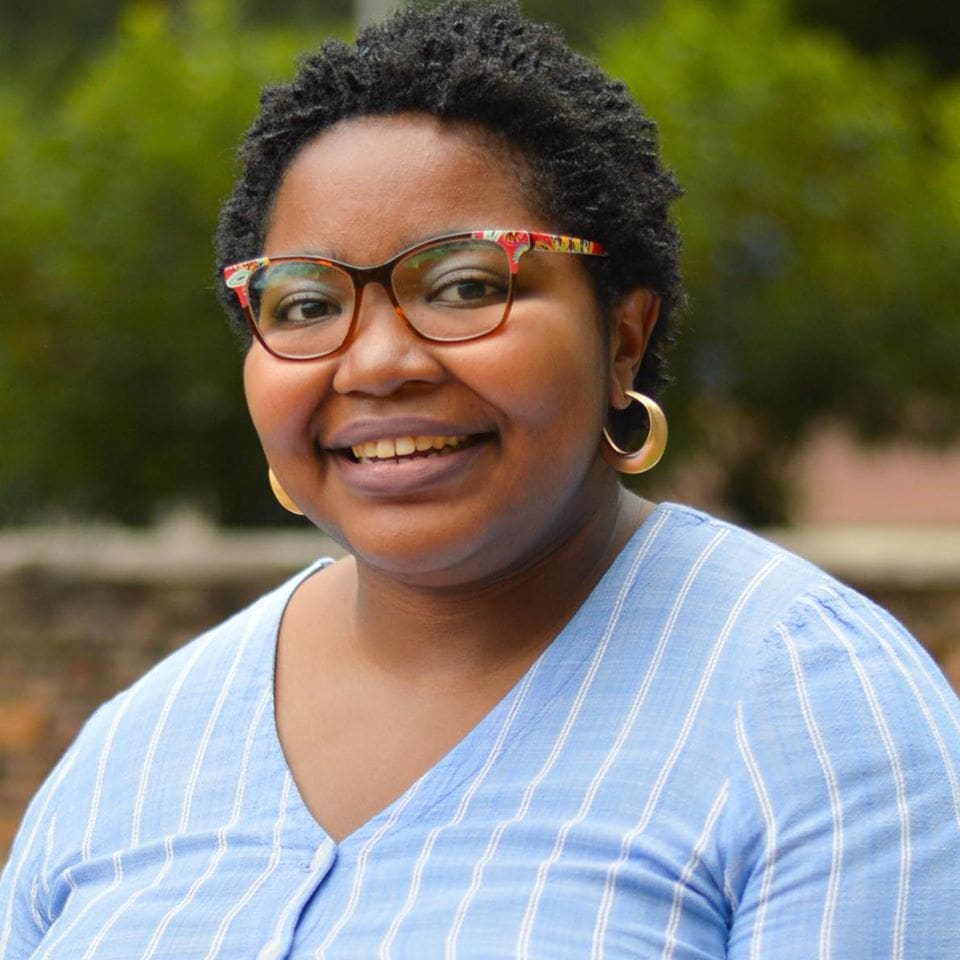Cobb County has joined a slew of areas in the United States under scrutiny by human and civil rights activists across the globe about systemic racism in law enforcement agencies.
The family and attorneys of Vincent Truitt, a Black teenager killed by a Cobb police officer last year, presented testimony to an international commission Saturday, Feb. 6.
The testimony came about a week after they announced they plan to sue Cobb County’s government and police for $50 million.
The International Commission of Inquiry on Systemic Racist Police Violence Against People of African Descent in the United States is a joint effort on part of the National Lawyers Guild, the International Association of Democratic Lawyers and the National Conference of Black Lawyers, according to the inquiry commission website.
The hearings began on Martin Luther King Day this year and ended Saturday, Feb. 6.
Representatives of Black people injured and/or killed by the police presented to the commission.
The family and attorneys of George Floyd, Michael Brown, Breonna Taylor, Botham Jean and Tamir Rice among many other victims of killing by police have presented to this international commission.
Based on these presentations, the commission will create a report and send it to the United Nations Office of the High Commissioner and the international public, according to the commission’s website.
The international commission stems from the UN Human Rights Council’s condemnation of racist police violence after a police officer killed George Floyd, a Black man in Minnesota.
The prominence of Black Lives Matter protests also inspired the UN HRC to make the UN OHCHR prepare a report on systemic racism against Black people by law enforcement globally.
The UN OCHCR report will be released to the UN HRC and the public in June 2021.
Specifically, the UN OHCHR will analyze “systemic racism, violations of international human rights law against Africans and people of African descent by law enforcement agencies, especially those incidents that resulted in the death of George Floyd and other Africans and of people of African descent, to contribute to accountability and redress for victims,” according to the resolution passed.
The International Commission of Inquiry consists of commissioners and witnesses.
The former are typically human rights experts and/or scholars while the latter is the victim’s family and attorneys.
The commissioners listen to the victim’s story and ask them questions about their case.
Commissioners also ask about political situations, race and laws in the victim’s area.
One of the commissioners for Truitt’s hearing was Professor Mireille Fanon-Mendès France. She is a UN expert, scholar and the daughter of “The Wretched of the Earth” author and anti-colonial activist Frantz Fanon.
Fanon-Mendès France participated from France.
Former Antigua and Barbuda Attorney General and human rights expert Sir Clare Roberts was the other commissioner.
Truitt family attorney Maria Banjo told an international audience that the way Cobb County police treated Truitt was inhumane.
Truitt, who was the passenger in a stolen vehicle, was shot twice in the back as he ran away from police.
After the police officer shot Truitt, Cobb police cuffed Truitt’s hands behind his back, according to Banjo.
“At that point, the police attempted to give CPR to him, even though Vincent was conscious and talking,” Banjo said. “[Truitt] eventually asked, ‘why did you shoot me? I’m dying.’ Vincent moaned on the ground as the Cobb County police removed his top, pants, undergarments, exposing his buttocks.”
Truitt’s family and attorneys met with Georgia Bureau of Investigation Director Vic Reynolds. Banjo said Reynolds told the group that investigations into killings like Truitt’s typically take 90 days.
Seven months later, the investigation into Truitt’s killing remains open.
Banjo also pointed out that the Cobb County Police Department has still not released the name of the officer who killed Truitt.
Additionally, the police and Cobb District Attorney Flynn Broady will not release the tape of Truitt’s killing — a demand that Truitt’s family and attorneys made to bring more awareness to Truitt’s case.
Broady, in a private meeting last month with the family and attorneys, went against his “several campaign promises” to release the tape, Banjo told the commission.
The tape will be released after Broady convenes a grand jury and makes a decision.
Banjo said that Broady expects to present Truitt’s case to a grand jury this month.
The videotape showed that Truitt did not pose any threat to the police officers the day he was shot, Banjo said.
Truitt’s family attorneys and some of his family (excluding Truitt’s mother) watched the tape of Truitt’s killing in private.
“This was very disturbing,” Banjo testified. “[Truitt] never looked towards any of the officers. As soon as [Truitt] got out of the vehicle, he turned and left. And out of all the police officers on scene, this particular officer was the only one that chose to discharge his firearm in the back of Vincent DeMario Truitt.”
Venethia Cook-Lewis, Truitt’s mother, said her son was an entrepreneur.
He also played multiple sports and volunteered as a camp counselor for his local Police Athletic League.
“He also worked as a Georgia certified soccer referee, he had just received his driver’s license and planned on purchasing his first car with his own money,” Cook-Lewis said. “Vince was a first child, first grandchild, first nephew, first real joy of my life. We lived and grew and learned a lot together.”
Cook-Lewis testified that her life has been destroyed since an unidentified Cobb police officer killed her son.
“This officer not only killed Vincent but he killed me too,” Cook-Lewis said.
Cook-Lewis also questioned the police narrative of Truitt’s killing.
She testified that Tim Cox, Cobb’s police chief, changed the story of what happened the day Truitt was shot multiple times.
She also questioned why Cobb PD is not releasing the name of the officer who killed Truitt, why the officer has not been fired from the force and charged with murder and why Cobb County will not release the tape to the public.
“The public should know the truth,” Cook-Lewis said. “Why is this officer still working? My son was no threat. This officer committed murder and he should be treated like any other person that commits murder.”
The commissioners then began questioning Truitt’s family and attorneys.
One of the questions Roberts asked was if there was any way to prevent the potential bias a prosecutor may have in favor of the police.
Truitt family attorney Gerald Griggs said he is hopeful that Broady will not be biased.
“Ultimately it’s going to be up to citizens, as well as the family to make sure there’s pressure on this particular DA, who ran on the platform that he would get justice in these types of cases, as well as get justice in Vincent’s case,” Griggs said.
Griggs said there has been a push in Georgia to have independent prosecutors on these types of cases, but that has not happened yet.
Roberts also asked what would justice look like in Truitt’s case.
Cook-Lewis said she wants the officer who killed her son fired and prosecuted to the fullest extent of the law.
The officer should also be sentenced to life as well, the family believes.
Cook-Lewis and Griggs also said that Cox must resign for covering for the officer who killed Truitt.
Fanon-Mendès France said that there is a lack of transparency from the local government and police in Truitt’s case.
“We have to take into consideration the structural racism in the US — particularly in the US,” Fanon-Mendès France said. “And the color line is one of the reasons that people are killed without any reason.”
Roberts also asked to what extent race was involved in Truitt’s case.
Banjo said race played a huge role in the police officer shooting Truitt.
“What this officer did in that case is absolutely irrational, absolutely unreasonable,” Banjo said. “And thus, it’s believed that but for his color, Vincent may still be here today with us.”
To watch all the international commission’s hearings on race and police brutality, click here.

Arielle Robinson is an undergrad at Kennesaw State University. She is the president of the university’s Society of Professional Journalists and an editor at the KSU Sentinel. She enjoys music, reading poetry and non-fiction books and collecting books and records.


This article spews a lot of infactual information. The video has been released. And in the video, you can clearly see a gun flying out of Vincent’s hand after he is shot, and it is even more clearly seen laying on the ground next to his body before any officer even gets close to him. It is not impossible to point a gun at someone while trying to run away from them, which is what Vincent was doing. That officer did not wake up that day and think “I’m gonna go kill a black person”. He located a stolen vehicle, which are commonly occupied by armed gang members, and what do you know, an armed person got out and had a gun IN HIS HAND. I understand you want to push a narrative but at least update the facts of this article before you do that.
It’s rare that I respond directly to comments outside of writing a rare “from the editor” opinion piece, but I’ve spent enough time hassling through how to handle this story that I decided to make an exception.
First, at the time this article was written the video had not been released. We don’t go back and retroactively edit articles unless we’re correcting an error. At the time the article was written the video was being withheld due to the ongoing investigation.
Second, I accept that Vincent Truitt had a gun. I haven’t done a frame-by-frame myself yet (the video segments presented at the DA’s press conference were, to me, anything but clear. It was dark and there was considerable glare, like most night-time body and dash cam footage I’ve seen). But enough people who have done the frame-by-frame have testified there was a gun, I don’t dispute it.
And once again, this article was written with the facts that were available at the time of writing. When new facts come it, news organizations write new articles. And at the time of the writing, the video had not been released.
One other point. We present what the family and their attorneys are stating because it’s a newsworthy perspective. Too often in the past news organizations served as stenographers of the official statements from government and police agencies. While we present that (we covered both the DA and the police chief’s press conferences, plus the initial police and GBI press releases) we’ll also print what the Truitt family and their attorneys are saying.